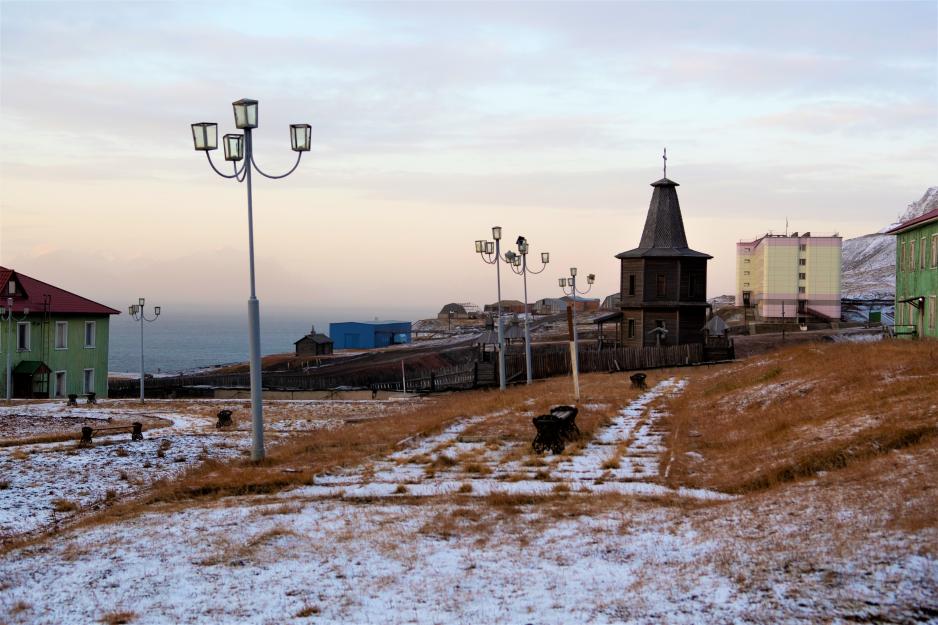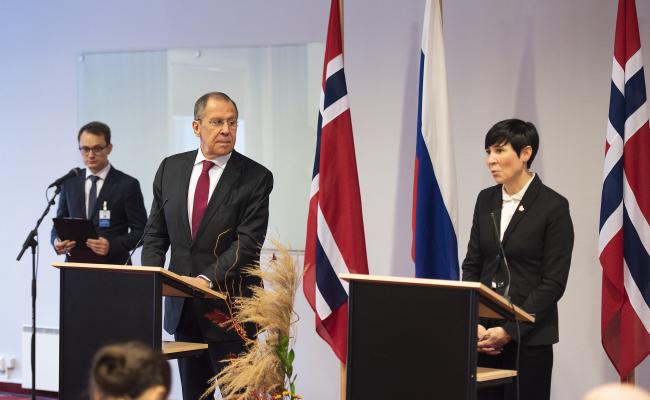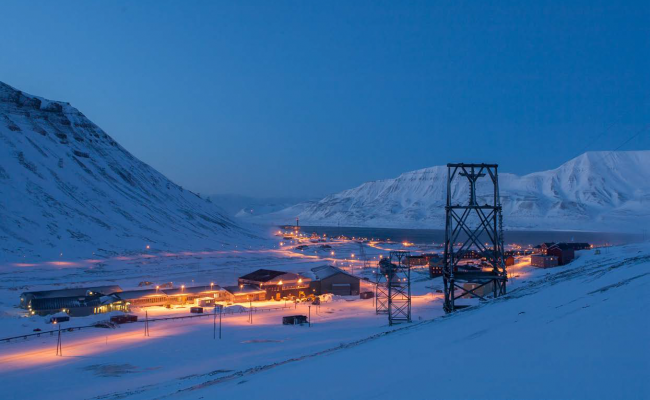Russia’s New Svalbard Initiative: Wants to Prevent Military Activity

Fridtjof Nansen Institute Researcher Arild Moe says Russia claims to have a special position in relation to Norway and Svalbard, and that Norwegian regulations limits its new initiatives more than necessary. Pictured above, Moe in Svalbard at another occasion. (Photo: Karoline Flåm/Wikimedia Commons)
Coalmining in Barentsburg is in a process of liquidation and Russian authorities turn their focus to research and tourism. “But Russia’s basic interest is really about preventing military activity in Svalbard”, says researcher Arild Moe.
In recent years, the concrete foundation for Russian presence in Svalbard has changed.
“To Russia, it is mainly about land-based business development, as coalmining in Barentsburg does not hold any future”, Arild Moe explains.
He is a political scientist and senior researcher at the Fridtjof Nansen Institute and works on Russia issues, energy politics and the High North.
Coalmining has traditionally constituted the Russian foundation for activity and presence in Svalbard. As this industry has grown limited, as has the population in Barentsburg, the Russian mining community some 40 kilometers south-west of Longyearbyen.
From having some 2,500 inhabitants at the end of the Soviet era, it currently has a population of just under 500 people.
“At the same time, Russian authorities have not worked very hard to maintain the industry, as opening a new mine would be very costly”, Moe says.
Moe recently participated in a debate organized by the Russian think-tank Alexander Gorchakov Public Diplomacy Fund, the theme of which was “Svalbard: The past and future of international cooperation”. Both Russian and Norwegian experts in international relations, history, economics, and research contributed to the debate.
New light
Downscaling coalmining has been an ongoing process for years, but Moe explains to High North News that the transition of Barentsburg is an issue on which the Russians have kept dragging their feet. But with recent years’ increased Russian political focus on the Arctic, Svalbard now emerges in a new light.
A military one.

Barentsburg is a Russian settlement in Svalbard some 40 kilometers from Longeyarbyen. There is no road connection between the two settlements. The Russians have been mining in Barentsburg since 1932. (Photo: Line Nagell Ylvisåker)
“Russia wants to be present in Svalbard for security policy reasons”, says Moe.
“They want to be in Svalbard for the sake of security. So when coalmining is over, how to maintain this presence to ensure that other countries do not start any military activities? Tourism and research cannot replace coal, though they are enough to justify presence”, the senior researcher says.
Increased dissatisfaction
How does the Norwegian governance of Svalbard relate to this?
“There is increasing dissatisfaction from the Russian side and more friction, as Norwegian authorities are restrictive about granting extended permissions to Russia when it comes to access to areas outside Barentsburg. Norwegian Svalbard policy is strongly market by environmental protection”, Moe says.
Today, one has to apply for every single flight of helicopter transport and so far, the Russian industry has only been permitted using helicopter when it has been necessary for freight to and from Barentsburg and the other Russian settlement in Svalbard, Pyramiden.
Obstacles
But Russia considers limitations on who gets to fly and where unfair, and reiterates its question, last time so in Russian Foreign Minister Lavrov’s note to Norwegian Foreign Minister Ine Eriksen Søreide in relation to the 100th anniversary of the Svalbard Treaty last year.
Because these restrictions represent an obstacle for the Russian desire to move into new initiative areas. Moe points out that environmental protection is one of the sections of the 1920 Svalbard Treaty to which Russia is one out of 45 parties.
Most operators in tourism in Svalbard base their activities on using boats, where tourists may go on shore in designated areas. Using helicopter for tourism is absolutely off-limit, according to Norwegian authorities. There are also heavy restrictions on using helicopter for research purposes.
Moe says the Russians know this perfectly well and that they will never risk the Svalbard Treaty over this.
Also read
No special position
But there is more to the Russian dissatisfaction. According to Arild Moe, Russia believes it has a special position in relation to Norway and Svalbard, and that Norwegian regulations limit its new initiatives more than necessary.
Norway, on the other hand, cannot give Russia any special treatment different from that of the other treaty signatories, as that would be a violation of the Svalbard Treaty.
“Russia does not stand out, on principle, but is rather just one out of 45 countries”, Moe points out.
In what way does Russia believe it is different from the others?
“It has to do with the historic background, its geographical location, and the fact that Russia is the only country besides Norway to have had extensive and long-term activity in the archipelago. However, if Norway were to give in to Russian special requests, it would also have to treat the other signatory countries equally.”
An unwanted paradox
That is a paradox for the Russians and a development they hardly would want. Yet Russia argues that Norway has the opportunity to demonstrate flexibility without violating the treaty.
Norwegian sovereignty in Svalbard is a good solution for Russia
The Svalbard Treaty does not regulate research, and the treaty signatories neither have a right to conduct research activity on the archipelago nor right to equal treatment in this.
But would militarization of Svalbard be a genuine problem if Russia cannot find a new foothold in Svalbard?
“No, this has not been any issue for years, and Norway adheres closely to the treaty provisions. It is also important to note that nobody really needs an airport in Svalbard for military reasons anymore. It is more about nuances and interpretations of the treaty. From the Russian side, showing military uniform in Svalbard is a violation, whereas the Norwegian view is that you cannot establish military facilities”, Moe says.
He adds that this is not a major issue today, however, that Russia wants to make fully sure this does not happen.
What is the relationship between Norway and Russia in Svalbard like today?
“Russia recognizes Norwegian sovereignty in Svalbard and will not behave in a manner that causes the Svalbard Treaty to collapse. If that were to happen, it would trigger an activation of other countries that Russia is not interested in. Thus, Norwegian sovereignty in Svalbard is a good solution for Russia”, Moe says in closing.
Also read
This article was originally published in Norwegian and has been translated by HNN's Elisabeth Bergquist.




